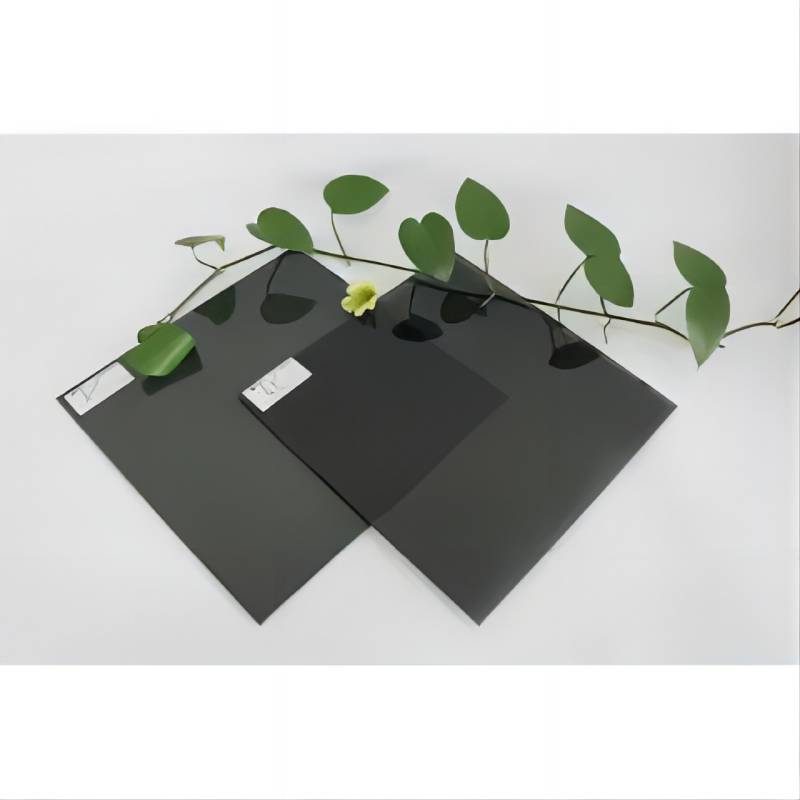Understanding 4mm Float Glass Properties, Applications, and Advantages
Float glass, a widely utilized material in modern architecture and design, comes in various thicknesses, with 4mm being a common choice. This article explores the characteristics, applications, and advantages of 4mm float glass, highlighting its role in contemporary construction and decor.
What is Float Glass?
Float glass is produced through a unique manufacturing process where molten glass is poured onto a bed of molten tin. This method allows the glass to spread out and form a smooth, even surface. The result is a flawless sheet of glass that is optically clear, has uniform thickness, and is free from impurities. The term float refers to this process, as the glass floats on the tin, creating its characteristic flat surfaces.
Properties of 4mm Float Glass
At 4mm thick, float glass strikes a balance between strength and weight, making it suitable for a variety of applications. Here are some key properties of 4mm float glass
1. Transparency One of the most notable characteristics of float glass is its transparency, enabling maximum light transmission. This property makes it ideal for both functional and aesthetic purposes in buildings and furniture.
2. Surface Smoothness The float glass manufacturing process yields a surface that is incredibly smooth. This is critical not only for visual appeal but also for performance, as this smoothness reduces reflections and distortions.
3. Chemical Resistance Float glass has excellent resistance to many chemicals, making it suitable for various environments, including kitchens and bathrooms where exposure to moisture and cleaning agents is common.
4. Thermal Performance While 4mm float glass does not provide significant insulation on its own, it can be combined with other materials or used in double glazing to improve thermal efficiency.
5. Safety and Durability Although it is relatively thin compared to other glass types, 4mm float glass is strong enough for many non-load-bearing applications. However, it is not tempered, which means that it can break into sharp shards under stress, a consideration for safety.
Applications of 4mm Float Glass
The versatility of 4mm float glass allows it to be used in various applications, including
4mm float glass
1. Windows Many residential and commercial windows utilize 4mm float glass due to its clarity and ease of installation. It allows natural light to flood spaces while providing a view of the outside world.
2. Mirrors Float glass is commonly used to manufacture mirrors. It can be coated on one side to create a reflective surface, perfect for bathrooms, dressing rooms, and decorative applications.
3. Furniture Glass tables, shelves, and cabinets often use 4mm float glass for its aesthetic appeal and functionality. It adds a modern touch to furniture while allowing light to pass through, creating a sense of space.
4. Partitions In office environments, 4mm float glass is used for non-structural partitions that maintain openness while providing privacy. Its transparency allows for a bright, open atmosphere.
5. Display Cases Retail environments frequently utilize 4mm float glass in display cases, ensuring that merchandise is visible while being protected.
Advantages of 4mm Float Glass
There are several reasons why 4mm float glass is favored in various industries
1. Economical Float glass is cost-effective, providing an affordable option for builders and designers without sacrificing quality.
2. Lightweight At 4mm thickness, the glass remains lightweight compared to thicker options, making it easier to handle and install, especially in large sheets.
3. Versatile Its range of applications is vast, from functional elements like windows to aesthetic components like decorative glass panels.
4. Environmental Impact Float glass can be recycled, contributing to sustainability in building practices.
In summary, 4mm float glass is a vital material in modern applications, combining clarity, durability, and aesthetic appeal. Its versatility allows it to serve myriad functions in architectural design, making it an essential element in various construction and decor projects. As the industry evolves, we can expect continued innovation in the development and application of float glass, further enhancing its role in our built environment.
 Afrikaans
Afrikaans  Albanian
Albanian  Amharic
Amharic  Arabic
Arabic  Armenian
Armenian  Azerbaijani
Azerbaijani  Basque
Basque  Belarusian
Belarusian  Bengali
Bengali  Bosnian
Bosnian  Bulgarian
Bulgarian  Catalan
Catalan  Cebuano
Cebuano  Corsican
Corsican  Croatian
Croatian  Czech
Czech  Danish
Danish  Dutch
Dutch  English
English  Esperanto
Esperanto  Estonian
Estonian  Finnish
Finnish  French
French  Frisian
Frisian  Galician
Galician  Georgian
Georgian  German
German  Greek
Greek  Gujarati
Gujarati  Haitian Creole
Haitian Creole  hausa
hausa  hawaiian
hawaiian  Hebrew
Hebrew  Hindi
Hindi  Miao
Miao  Hungarian
Hungarian  Icelandic
Icelandic  igbo
igbo  Indonesian
Indonesian  irish
irish  Italian
Italian  Japanese
Japanese  Javanese
Javanese  Kannada
Kannada  kazakh
kazakh  Khmer
Khmer  Rwandese
Rwandese  Korean
Korean  Kurdish
Kurdish  Kyrgyz
Kyrgyz  Lao
Lao  Latin
Latin  Latvian
Latvian  Lithuanian
Lithuanian  Luxembourgish
Luxembourgish  Macedonian
Macedonian  Malgashi
Malgashi  Malay
Malay  Malayalam
Malayalam  Maltese
Maltese  Maori
Maori  Marathi
Marathi  Mongolian
Mongolian  Myanmar
Myanmar  Nepali
Nepali  Norwegian
Norwegian  Norwegian
Norwegian  Occitan
Occitan  Pashto
Pashto  Persian
Persian  Polish
Polish  Portuguese
Portuguese  Punjabi
Punjabi  Romanian
Romanian  Russian
Russian  Samoan
Samoan  Scottish Gaelic
Scottish Gaelic  Serbian
Serbian  Sesotho
Sesotho  Shona
Shona  Sindhi
Sindhi  Sinhala
Sinhala  Slovak
Slovak  Slovenian
Slovenian  Somali
Somali  Spanish
Spanish  Sundanese
Sundanese  Swahili
Swahili  Swedish
Swedish  Tagalog
Tagalog  Tajik
Tajik  Tamil
Tamil  Tatar
Tatar  Telugu
Telugu  Thai
Thai  Turkish
Turkish  Turkmen
Turkmen  Ukrainian
Ukrainian  Urdu
Urdu  Uighur
Uighur  Uzbek
Uzbek  Vietnamese
Vietnamese  Welsh
Welsh  Bantu
Bantu  Yiddish
Yiddish  Yoruba
Yoruba  Zulu
Zulu 

